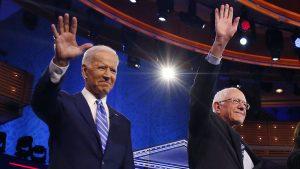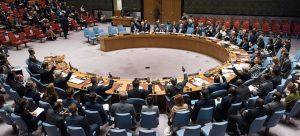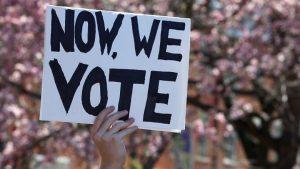The United States and the Russian Federation have agreed to a full five-year extension of New START–the last remaining nuclear arms treaty between the two powers. This renewal comes only days before the treaty was due to expire on February 5th. The treaty faced serious threats by the previous Trump administration, which attempted to use New START as a bargaining tool to bring China into the agreement and add new warhead caps with strict inspection regulations for production facilities.
New START limits the deployed strategic nuclear warheads at 1,550 for both nations and sets provisions for the monitoring of non-deployed missiles. In 2010, Presidents Obama and Medvedev signed the treaty in Prague, Czech Republic as a significant bilateral agreement highlighting the ‘reset’ in relations.
Worsening US-Russia Relations
Unfortunately, a wide range of issues remain between the two largest nuclear powers. Given that Democrats, the mainstream media, and national security pundits assailed Mr. Trump for over four years about unproven collusion with Russia, President Biden’s recent phone call with President Putin “was being watched as much for its tone as its substance,” according to the New York Times.
This is officially the first time since the Cold War ended that the new White House administration has not openly expressed an interest in conducting a reset of relations with the Kremlin. Observers note that US-Russian relations are at their lowest point in decades over issues ranging from the Ukraine crisis, alleged interference in both country’s domestic affairs, NATO expansion and buildup on Russian borders, and many others.
Reasons for Détente
As the late Professor of Russian Studies at Princeton and New York University, Stephen Cohen said, “the United States does not need a friend in the Kremlin, it needs a partner.” Amid the Coronavirus crisis, a global economic downturn, global terrorism, and the threat of climate change, there are certainly important areas for both nations to partner on.
Instead of uniting around partisan rhetoric from think tanks and media pundits on how to draft policy, both in Washington and Moscow, the two administrations must work to improve the worsening relations between them. Given that the United States is facing a potential peer competitor in China, it would serve Washington to find cause for meaningful cooperation with Moscow.
Professor John Mearsheimer of Chicago University notes that with, “the expansion of NATO and the European Union and the color revolutions in Eastern Europe, the West poisoned relations with Russia, pushing them into the arms of the Chinese.” An objective of national interest for the State Department should be extending an olive branch to the Russians to counter the seemingly cozy relations between Beijing and Moscow. However, both Moscow and Washington remain dubious of one another’s intentions–making a potential warming of relations that much more challenging.
Looking Forward
The extension of New START is the first foreign policy move by the new Biden administration and certainly offers a diplomatic win early on–although some Republican critics are quick to smear the treaty’s extension which prevents a renewed arms race.
Both Biden and Putin face presidential elections in 2024. International observers are watching how events will unfold between the two nations and the implications for years to come. While President Biden may not seek reelection, his successes (or failures) could determine which party occupies the White House in January 2025. President Putin has created the domestic opportunity to either continue on as President until 2036 (he would be 84) or to transfer presidential powers and take another post in government. The events of the next four years will certainly be crucial in the foreign policy calculus of Russian and American Presidents for years to come








